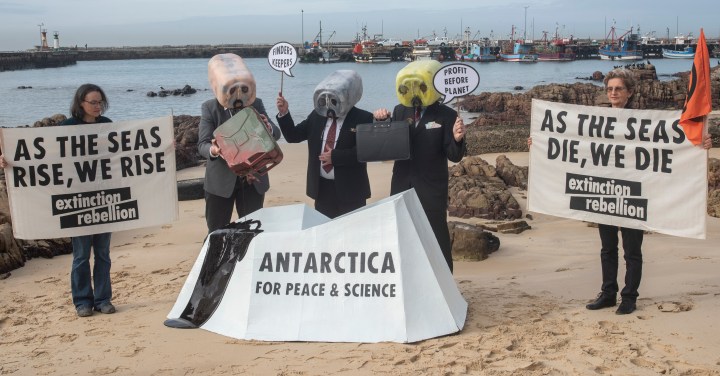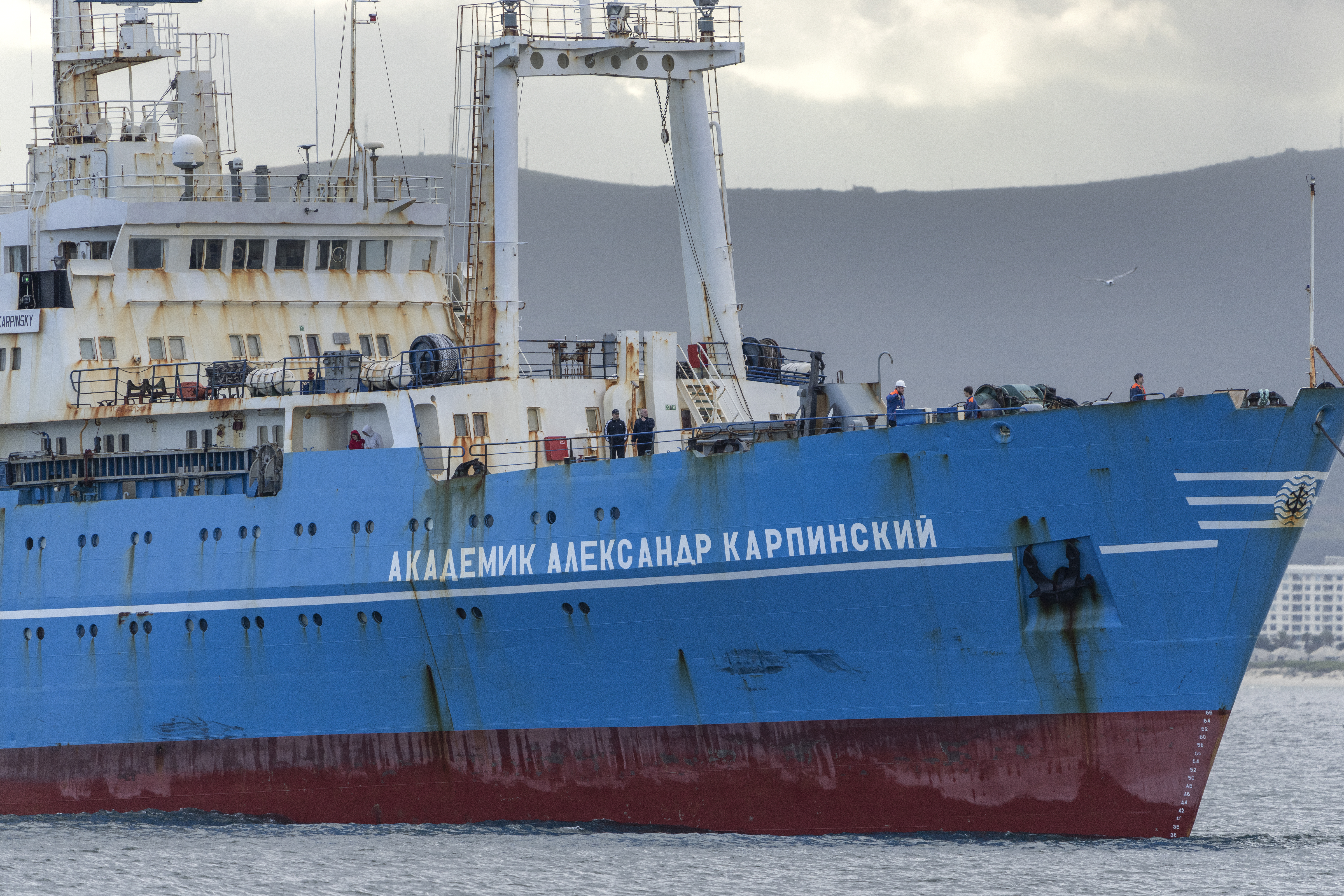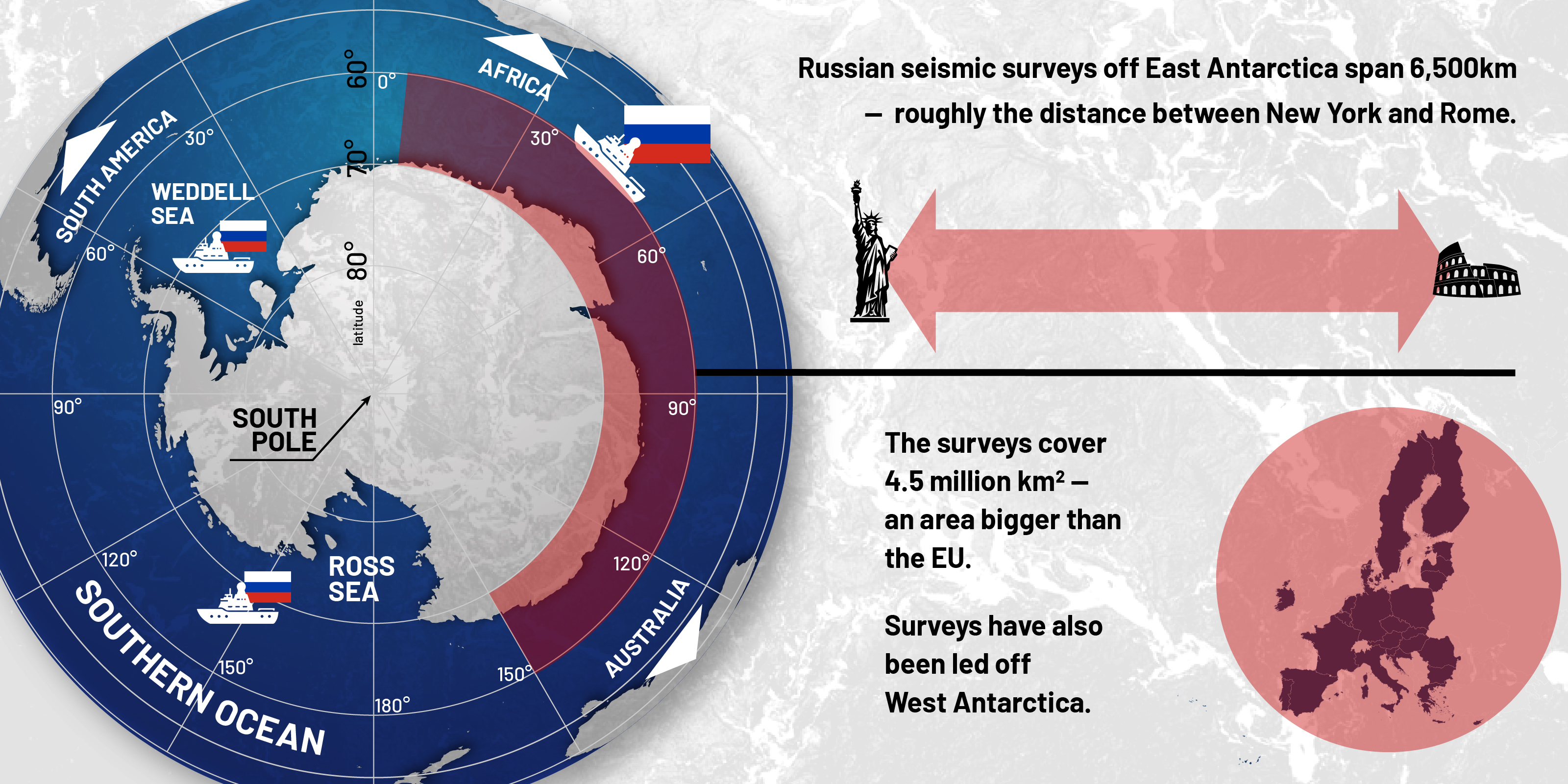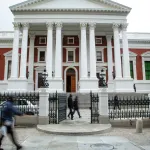BATTLEGROUND ANTARCTICA
Cracking the Cold Case: The Russia-Cape Town Antarctic minerals nexus explained

Treating the controversy with the speed of a sloth at a sprinting competition, the South African government says it cannot investigate the Kremlin’s south polar minerals ‘research’ missions via Cape Town without evidence. In a Parliament briefing, the Democratic Alliance suggested the state had predetermined the data ‘as false’. Get clarity on all the claims and counterclaims here.
Despite a ban on mining activities, signed in 1991 by 26 Antarctic Treaty states, Russia has collected data on the region’s mineral resources for at least 25 years — thus, ever since the ban formally entered into force in 1998. And while the ban coughs politely, Russia’s self-declared minerals search on the continent and within the Southern Ocean seabed has raised repeated questions about the interpretation of the treaty and the possible implications for Antarctica’s fragile environment.
In June, the DA suggested during a Parliament briefing that South Africa ought to investigate — an idea that was rejected by top polar official Lisolomzi Fikizolo. “It has been allegations with no evidence,” he said. Antarctic governance academia have disagreed, saying the “evidence” for “prospecting” is “clear”.
FOUR KEY INSIGHTS YOU NEED TO KNOW
- Russia’s data collection: Russian state entities have compiled Antarctic oil, gas and other minerals inventories on land and by sea. These inventories are readily accessible on Russian state websites (see below). The Madrid Protocol’s mining ban, signed by Russia and South Africa among others, says that “any activity relating to mineral resources, other than scientific research, shall be prohibited”. (Also called Article 7, this represents the full ban text, which does not actually define “scientific research”.)
- Cape Town — more than meets the ice? The “Mother City”, a popular international tourist destination framed by Table Mountain, is also a transit hub for Russian data collection on Antarctic minerals. To look for those minerals, such as oil and gas beneath the Southern Ocean, the Kremlin deploys annual seabed surveys from the Akademik Alexander Karpinsky, a geological seismic ship with airguns. The ship is owned by the Polar Marine Geosurvey Expedition (PMGE), a subsidiary of Rosgeo — the Kremlin’s chief mineral explorer. Rosgeo says the surveys are legal geological research under the ban.
- Reviewing the ban: While the mining ban does not have an expiry date, it can be legally reviewed starting any time from 2048. This potential review raises concerns about Earth’s last unmined frontier becoming vulnerable to commercial exploitation, potentially further altering the delicate balance of the region.
- Climate change irony: About 9,000 emperor penguin chicks died in November 2022 due to unusually low sea ice. Whether legal or not, searching for oil and gas in a region most likely melting as a result of our consumption of these fuels raises uncomfortable questions about the limits of Antarctic governance.

The Akademik Alexander Karpinsky, a Kremlin seismic blaster, returns to Cape Town on 3 April 2023 after an expedition in the Southern Ocean. (Photo: Nic Bothma)
VERIFIABLE FACTS DISMISSED BY LOCAL AUTHORITIES*
- Russian state involvement: The Karpinsky ship is the central cog in Russia’s minerals “research” endeavours. It transits through Cape Town annually and is part of Russia’s formal south polar programme: the Russian Antarctic Expedition. (Sources: Antarctic Treaty shipping reports, Arctic and Antarctic Research Institute/AARI expedition reports, Daily Maverick articles, Department of Geology and Mineral Resources of Antarctica/VNIIOkeangeologiya, key impact assessments, PMGE expedition/results reports, Rosgeo statement, Russian Science Foundation-backed research.)
- Decades of “research”: Rosgeo’s PMGE subsidiary has been involved in minerals “research” across multiple Antarctic areas at least since the 1998 mining ban came into force. (Sources: Department of Geology and Mineral Resources of Antarctica/VNIIOkeangeologiya, PMGE annual company reports, Russian Science Foundation-backed research.)
- Extensive airgun blasting: Covering an area larger than the EU, the airgun surveys raise environmental concerns due to their potential impacts on marine life. (Sources: Daily Maverick articles, international peer-reviewed research, PMGE directorate media interviews here and here, PMGE expedition/results reports, PMGE official vessel specifications here and here, Russian Science Foundation-backed seismic data.)
- Oil and gas claims: Rosgeo’s claims of around 500 billion barrels (70 billion tons) of oil and gas beneath the Southern Ocean lack empirical support, but they have been made repeatedly. (Sources: Kremlin state decree up to 2020 and beyond, PMGE’s 70 billion ton estimates in 2016 and 2012 reports/general multibillion ton estimates in 2012, 2010 and 2008 reports, Rosgeo statement.)
- Diverse minerals inventory: Beyond oil and gas, the subsidiary has amassed inventories of minerals such as gold, diamonds, copper-nickel, coal, iron ore, molybdenum and uranium. (Sources: PMGE expedition/results reports in 2020, 2018, 2016, 2013, 2012, 2011, 2009-06.)
- Consistent efforts: The subsidiary’s regular returns to Antarctica signify ongoing exploration. (Sources: Antarctic Treaty shipping reports, Department of Geology and Mineral Resources of Antarctica/VNIIOkeangeologiya, international peer-reviewed research, key impact assessments, com, PMGE expedition/results reports, Rosgeo statement, Russian Science Foundation-backed research.)
- Mineral potential emphasis: In publicly available reports and scientific papers, the subsidiary consistently records its assessments of Antarctica’s “mineral potential”. (Sources: All-Russia Petroleum Research Exploration Institute/peer-reviewed paper, PMGE company reports — as well as here and here, Rosgeo statement.)
- Government orders: Kremlin decrees have greenlit these missions. This approach is consistent with academic views of Russia as a “petrostate” that defines itself in opposition to the international energy transition, despite endorsing the Paris Agreement. (Sources: PMGE expedition/results reports, Russia Against Modernity by Alexander Etkind.)
- Wide Kremlin endorsement: State entities such as AARI, Rosgeo, hydro-environment agency Roshydromet and mineral resources agency Rosnedra are charged with executing Russia’s vision for Antarctic geological research and minerals assessments. (Sources: Daily Maverick articles, Russian prime minister’s office — state decree.)
- Kremlin’s mining policy: The 2022-approved “Reproduction and Use of Natural Resources” programme integrates Antarctic geological research into its mining policy. (Sources: Reproduction and Use of Natural Resources programme.)
*This is not an exhaustive list. The full ‘Battleground Antarctica’ series and its findings can be accessed through Daily Maverick’s Our Burning Planet section.
THE CAPE TOWN CONNECTION
Claiming credit for the “overwhelming majority” of work needed to identify Antarctica’s potential supergiant oil fields, Russia uses Cape Town as an annual launchpad.
- Rosgeo, while berthed in Cape Town in February 2020, claimed the presence of 500 billion barrels of oil and gas in Antarctica.
- Cape Town is an official Antarctic gateway for a number of states, including Russia, needing to reach the south polar region for a range of logistical/scientific aims. Moscow and Pretoria signed a memorandum of understanding in 2021.
- Describing East Antarctica as a promising area for “mineral and hydrocarbon raw materials”, Russia has submitted assessments citing Cape Town’s role in “marine-geophysical surveys” aboard the Karpinsky.
COUNTERCLAIMS — RUSSIA AND SOUTH AFRICA
- All of the now 29 Antarctic Treaty decision-making states, including Russia and South Africa, reaffirmed the mining ban at their 45th consultative meeting, held in Helsinki over May and June.
- The South African government has stated, on a number of occasions this year, that it is committed to the ban. It says Russia is free to pursue its national interests under a treaty cornerstone: the freedom of scientific investigation, and is allowed “innocent passage” from the “UN point of view”.
- Rosgeo has maintained its activities are solely aimed at non-commercial scientific inquiry, preserving Antarctica as a “nature reserve for peace and science”.
FLAGS RAISED BY PEER REVIEW
Academic papers have noted the surveys as activities worth keeping an eye on. Like protests by Extinction Rebellion Cape Town and others, some academics have called for an unchangeable ban on oil and gas extraction, arguing the activities are prospecting.
- International regulation of mineral resources activities in the polar regions — A chapter in The Routledge Handbook of Polar Law (2023).
- Antarctica: What role for the European Union? — An independent report for the European Parliament (June 2023).
- Now and Never: Banning hydrocarbon extraction in Antarctica forever — A research paper in GIGA Focus Global, for the German Institute for Global and Area Studies (2022).
- Russia and China in Antarctica: Implications for the Five Eyes — An independent report for the Royal Australian Navy (2022).
- The militarisation of Russian polar politics — A research paper by Chatham House, the Royal Institute of International Affairs (June 2022).
WHAT THE EXPERTS TOLD US
As the controversy around Russia’s data collection on Antarctica’s minerals remains, the international community watches closely.
‘I will not foresee any changed circumstances for the potential of Antarctic mining in the longer-term future.’ — Professor German Leitchenkov, head of the Russian state marine geology institute’s Antarctic department of geology and mineral resources, responding to questions about war sanctions. Leitchenkov said he also worried about Antarctic environments, and that scientists from different countries have published reports on Antarctica’s mineral resources.
***
‘Russia’s not the only one … we can’t change anything about it. The Antarctic is not exceptional in that logic. So, it’s more about safeguarding the hypocrisy to a minimum to make sure the system stays alive and that highly non-compliant behaviours are called out for what they are.’ — Mathieu Boulègue, Global Fellow, Polar Institute, Wilson Center.
***
‘At the end of the 1990s, the time horizon of 2048 was a very long time ahead — 50 years. We are now halfway through that period …’ — Professor Alan Hemmings, a world authority on Antarctic governance at Canterbury University, New Zealand. In 2022, Hemmings co-wrote the first peer-reviewed call for an immediate, unchangeable ban on oil and gas extraction in Antarctica. He has just co-written an explanation of the mining ban and how, post-2048, this might change.
***
‘Certain activities might not necessarily have a pure science goal but are masked by it. And, while Russia has stated on numerous occasions that it sees Antarctica having resources potential, we shouldn’t confuse intention/thoughts with actions.’ — Yelena Yermakova, Fung Global Fellow 2023-2024, Princeton University.
***
‘The Antarctic Treaty System is not the final word on the governance of our seventh continent, and we must begin to prepare ourselves for a different future.’ — Doaa Abdel-Motaal, author of Antarctica: The Battle for the Seventh Continent. DM























 Become an Insider
Become an Insider
Comments - Please login in order to comment.